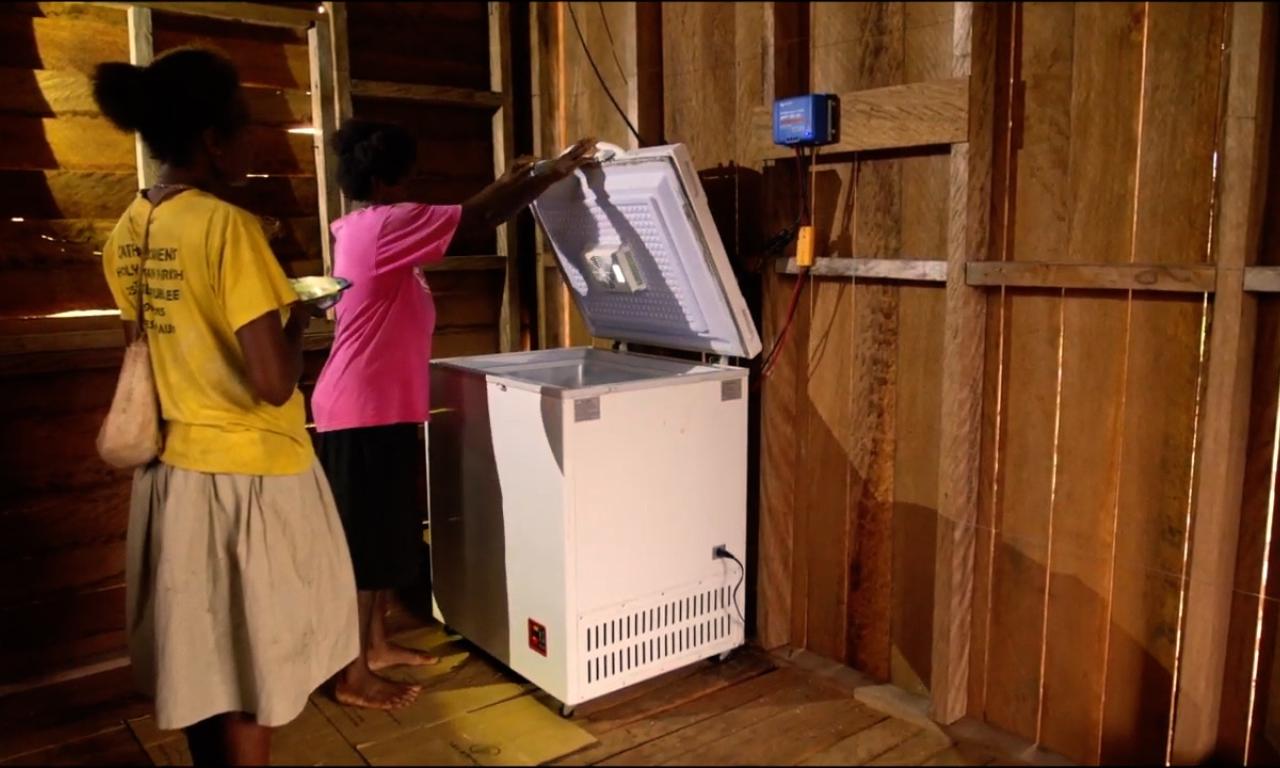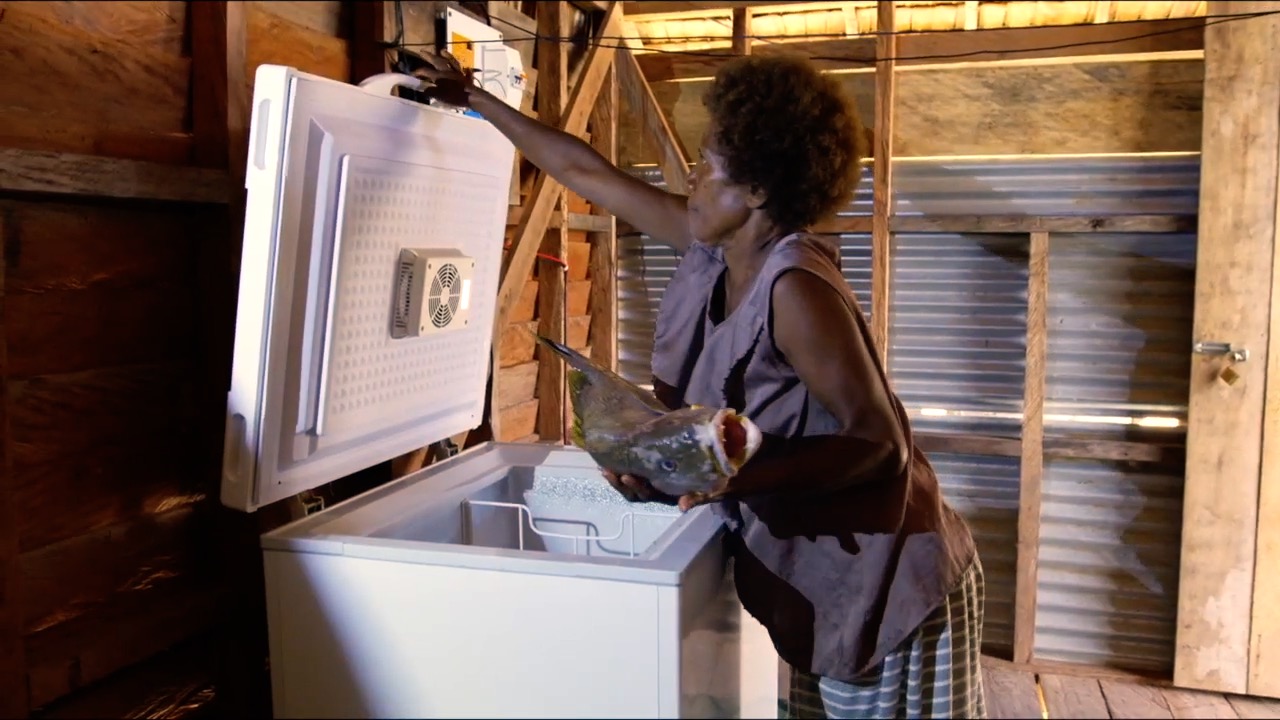
- Women’s group in the Solomon Islands are leading the way in community-driven innovation with the introduction of solar-powered freezers.
- A recent paper, co-authored by WorldFish researchers, provides an in-depth look into the transformative impact of this imitative on rural livelihood activities.
- The paper highlights the tangible benefits of the project, from significant savings to enhanced empowerment, and identifies areas for further enhancements.
When is a freezer more than just somewhere to store food? When it’s solar-powered and spearheading women’s economic change in the Solomon Islands. A new paper co-authored by WorldFish researchers unveils the transformative potential of solar-powered freezers in rural communities, particularly enhancing the livelihoods of women involved in aquatic food-based enterprises.
A solar-powered solution
The paper, ‘What can the experiences of rural women in Solomon Islands teach us about innovation in aquatic food systems?’ summarises the experiences of a 5-year participatory action research journey of women from the Solomon Islands based Women’s Association of Rokotanikeni (WARA), navigating the opportunities and challenges presented by the introduction of solar-powered freezers in their communities.
“In Solomon Islands they usually build these big fisheries centers, which men use and most of the time women don't, so the whole idea behind this research was, what if we start with something small, and we work with women's group instead of men? So, we started a conversation with, the women, the WARA group and the group’s leader, and then we came up with this solar freezer idea,” says Margaret Batalofo, WorldFish Research Analyst and Lead Author of the paper.
The research pivoted around the central issue of food waste and spoilage, a constant challenge in the aquatic food sector of the Solomon Islands, exacerbated by tropical climate, difficulties in transportation and limited access to cold storage facilities. This lack of adequate storage and processing options, coupled with limited transport opportunities and barriers to market access, contribute to the reliance on long shelf-life convenience foods, a key contributor to the increase in non-communicable diseases and poor health outcomes in the Solomon Islands.
By embracing the solar-powered freezers, the women were able to make nutritious aquatic foods available in areas it wasn’t previously available explains Margaret Batalofo,
“Many parts of the island are very rural, or they don't have markets at all, where the women could come and sell their goods. So, finding an opportunity to sell goods is complicated, but then they knew how to make it work. They could buy fresh fish from more urban centers and then use the solar-powered freezers to store it to sell in areas it wasn’t available in before. “

Solar-powered micro-enterprises
The freezers, operated as micro-enterprises, which the women integrated into their existing marketing practices, enhancing their product offerings, and opening new avenues for income.
The women’s groups operating the solar-powered freezers amassed a total of around USD 6,212 in fees from the usage of the freezers. The amount of money saved varied across different zones, reflecting the different rates of freezer usage or operation duration. The funds were managed by committees and used for purposes such as maintenance, a financial buffer in emergencies and in some cases community development, where the accrued funds financed community projects.
Challenges and the path ahead
However, technical issues, particularly related to the reliability of some of the freezers, emerged as hurdles, hampering operations, and affecting the financial viability of the enterprises.
“The technical side could have really affected this, but the woman’s group leaders don’t easily give up,” says Margaret.
The study highlights essential learnings in social innovation and reveals the entrepreneurial acumen of the women. It also questions conventional development thinking and shows how a community-based, decentralized, and locally led innovation approach rooted in a respect for participants' voices and experiences, can have a transformative effect.
